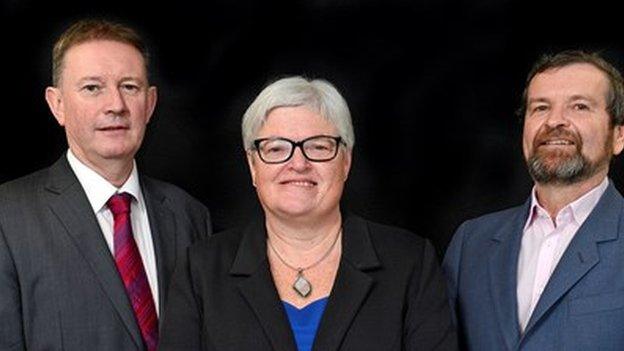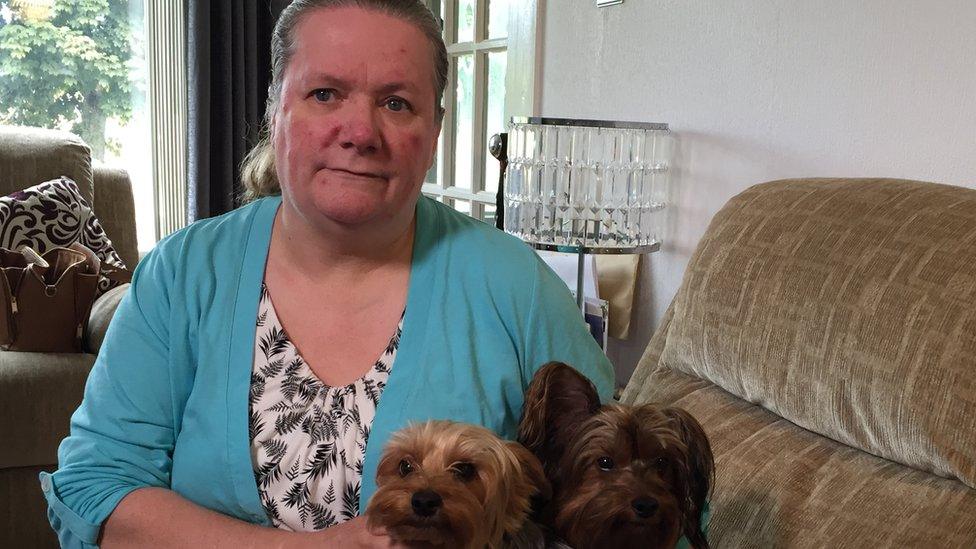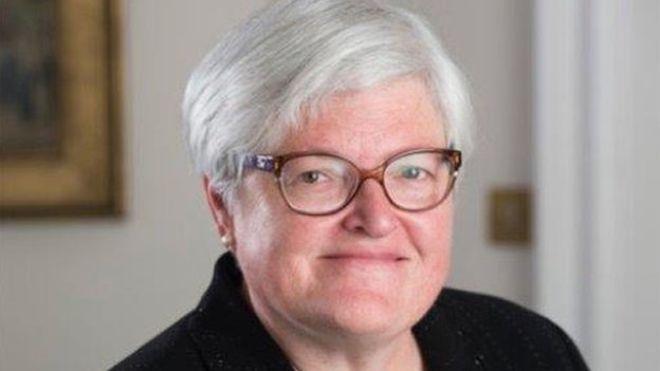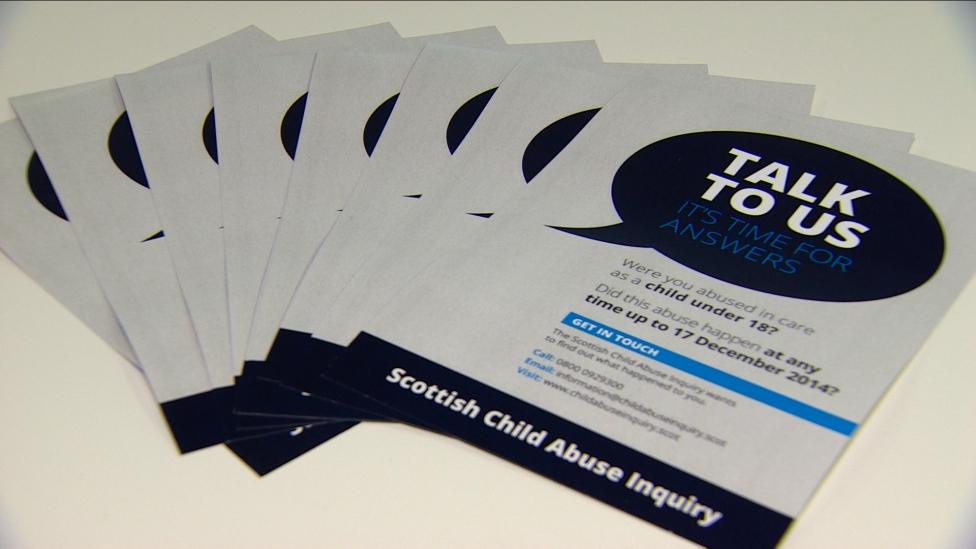In Care Survivors group lose faith in child abuse inquiry
- Published

Ms O'Brien. centre, and Prof Lamb, right, have both quit the inquiry. Panellist Glenn Houston [first left] remains an inquiry member
A survivors' group has said they have lost confidence in the Scottish government's child abuse inquiry
It follows the resignation of chairwomen Susan O'Brien, who stepped down after the deputy first minister began formal proceedings to sack her.
The In Care Survivors group said the handling of the inquiry and accusations of government interference had been "traumatising" for abuse victims.
John Swinney denied interfering and said due process was being followed.
Mr Swinney had begun formal proceedings to sack Susan O'Brien QC over inappropriate comments she reportedly made at a training event in February.
He said that Ms O'Brien had "revealed views" which child abuse trauma experts had judged to "indicate a belief system that is incompatible with the post of chair of such an inquiry".
However, when she stepped down on Monday, Ms O'Brien claimed the Scottish government was interfering in the inquiry, a claim also made by Prof Michael Lamb, who resigned last week from the panel.
'Traumatising for survivors'
Helen Holland, a spokeswoman for In Care Survivors, told the Good Morning Scotland programme: "I think it's been awful, and the people who are most affected by this are the survivors themselves - the very people who should be protected."
She added: "There was a lot of talk about re-traumatisation for survivors. This whole event has been traumatising for survivors. Last week I spent just two nights constantly on the phone to survivors, phoning with concerns that they had about the whole thing."
Ms Holland said survivors were most alarmed by accusations of interference in the inquiry by ministers.

Helen Holland, a spokeswoman for In Care Survivors, said: "This whole event has been traumatising for survivors"
She said: "We need answers. We need to know exactly what happened, exactly what the interference is and at what level that interference has been there. At every step of the way, everybody who has been involved with this since 2007 has said there needs to be absolute independence from government."
"I would be lying if I sat here and said I had faith in the inquiry. As it stands at the moment, no. But it can be rectified if it's dealt with properly."
Mr Swinney, who is due to meet survivors on Thursday, denied undue interference and insisted government was trying to ensure costs associated with the inquiry were appropriate.
He said: "The government has an obligation to make sure that public money is used effectively and wisely.
"One of the issues that we were concerned to be persuaded about was, was it really necessary for counsel - members of the Faculty of Advocates - to do all of the taking of evidence from individuals? Couldn't that be done by other individuals who were professionally trained to do so, which would have been done at a lower cost?"
"The government has a proper responsibility in terms of the Inquiries Act 2005 - the law - the make sure that public money is being used appropriately for the inquiry and we have got an obligation to ensure that we manage the cost."

ANALYSIS
By BBC Scotland health correspondent Eleanor Bradford
Deputy First Minister John Swinney says the row is, in part, due to the fact the Scottish government has been trying to keep costs down by limiting the number who give evidence to the inquiry's lawyers, or whether someone else could take the evidence instead.
Expensive inquiries always draw public criticism, but placing limits on the way evidence is gathered also raises concerns.
The recent Penrose Inquiry into contaminated NHS blood supplies limited the amount of evidence submitted.
Out of hundreds of people who were infected, Lord Penrose allowed only six to give oral evidence to the inquiry.
That led to a widespread belief amongst survivors that it was biased from the start, and when the report was finally published they branded it a whitewash.
Yet it still cost the taxpayer £12m.

Mr Swinney also denied he had been slow to react over the allegations surrounding Susan O'Brien.
He said he was not made aware of her "unacceptable" remarks until May. He added: "I can well understand the concerns of survivors groups.
"Officials wrote to Ms O'Brien on 20 May indicating that I was considering terminating the appointment in respect of some remarks that had been reported to me."
He insisted: "I've gone through due process. I wanted to make sure that I acted properly and fully and in a transparent way in handling this matter."
Ms O'Brien's resignation leaves the inquiry, which concerns historical allegations of child abuse in Scotland, with only one panel member. It is scheduled to last four years.
- Published5 July 2016

- Published4 July 2016

- Published28 June 2016
